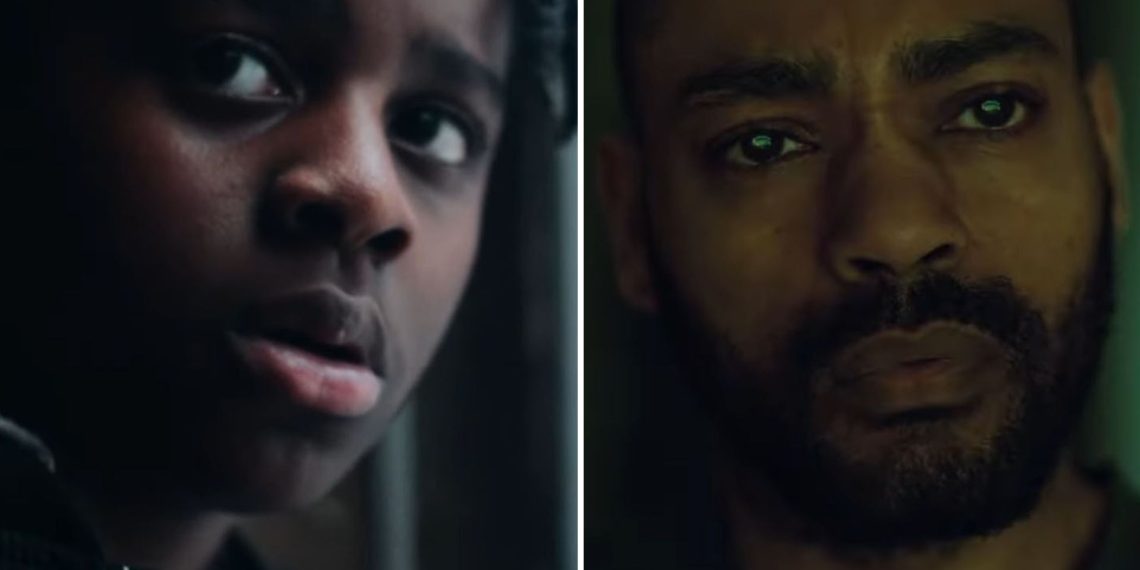If you’re a fan of Top Boy, and if you’re a fan of Black Mirror, then this movie is the perfect crossover of the two. Set in a dystopian London in the not-so-distant future, we saw that social housing had been eliminated, which left The Kitchen. A state where people were refusing to leave due to it being their home and having nowhere else to go.
With powerful themes at its core, it provided an alternate look at modern-day society, the class system, and how people get left behind and treated in inhumane ways when they’re not considered. So let’s jump into this movie, do a The Kitchen Movie Ending Explained, and discuss all that there was to take away from it.
The Meaning Behind The Kitchen Movie
So I took a couple of different things away from this film, but the main underlying message that ran throughout the entirety of it was the class system. And that if we lived in a world where social housing was removed from society, then a large group of people would be forgotten about.
It felt like this kind of world was only a couple of steps away and some people are out there in society at the moment that are living like this, where they’re relying on social housing and estates like this because it’s their home. If it wasn’t in place then they’d be on the streets.
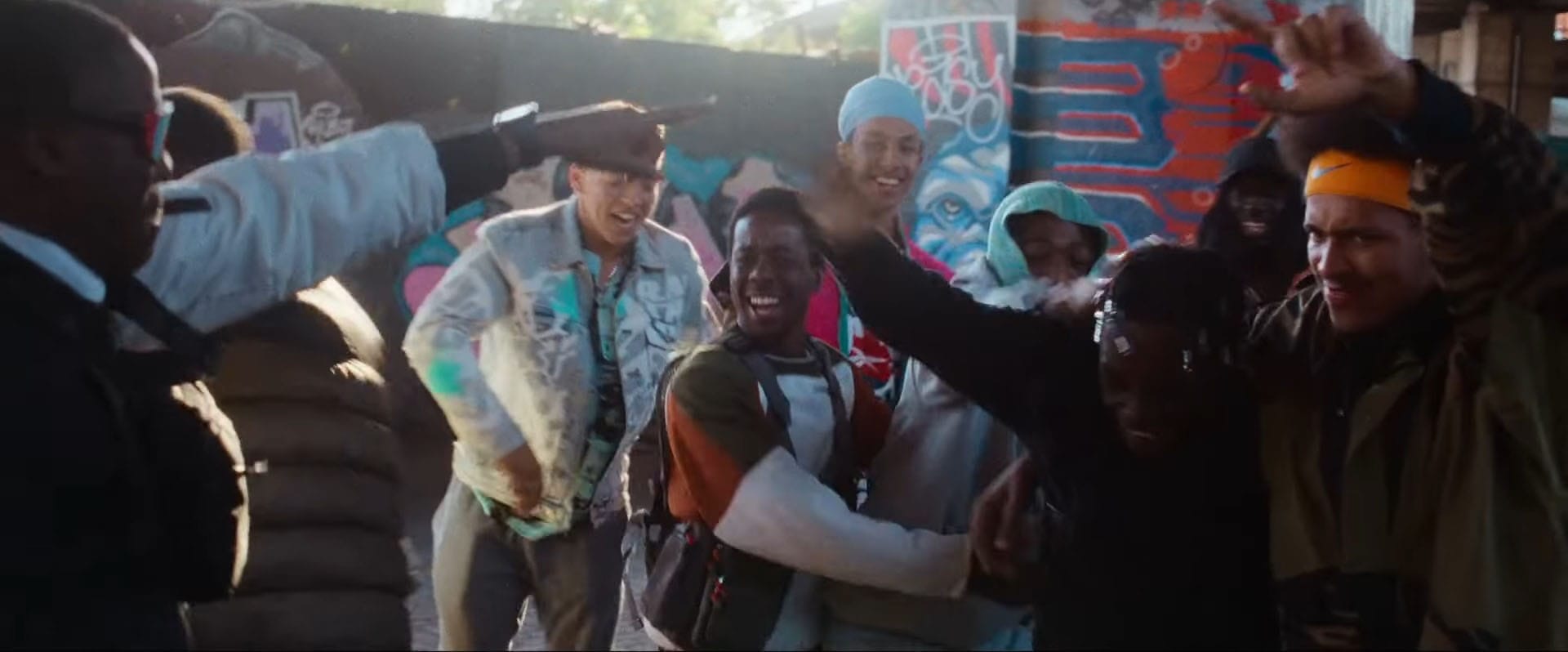
To the outside world, people inside the kitchen didn’t exist. They were disposable and an inconvenience. The water was shut off from there, supply stopped being delivered. Police would come in on their weekly raids, attack them, kill them, and then take them away.
They valued the lives of the people inside the kitchen less than they did the plots of land that the estate was built on. So it was rather telling as the way that society viewed the people who didn’t have as much money as those on the outside.
What this film shone a light on is the culture community and heart that estates like the kitchen have. We saw this best when Izi and Benji went out to the bar, music was playing and everybody was happy. It was also seen when residents would look out for one another when the raids would be happening. The togetherness that was present on the streets and also when the capacity limit was breached at Lord Kitchener’s funeral due to him being killed by the police when they raided the estate
The Kitchen Had A Strong Community
Izi spent the entirety of his life trying to get out of the kitchen and getting a new apartment at Buena Vida, even though it was his home and where he grew up, he referred to the kitchen as a dump.
Despite being from there, he saw it at face value and how people on the outside looked at it. When in reality, Jace, somebody whom he worked with and who was also from there, saw it for what lay within: the heart community and most importantly, the home for himself, his daughter, and many other people that he cared about.
When Lord Kitchener spoke over the radio about one of the residents turning 86, it showed that it was a community where everybody knew one another, and that’s what made the kitchen so special.
Izi ended up at one of those fancy apartments at Buena Vida after leaving Benji inside of a cafe and declining the option to get a two-bedroom apartment for the both of them. Because it meant that he’d lose his one bedroom and be at the back of the queue and have to stay in the kitchen for longer, even though he cared about Benji and actually wanted to do that deep down.
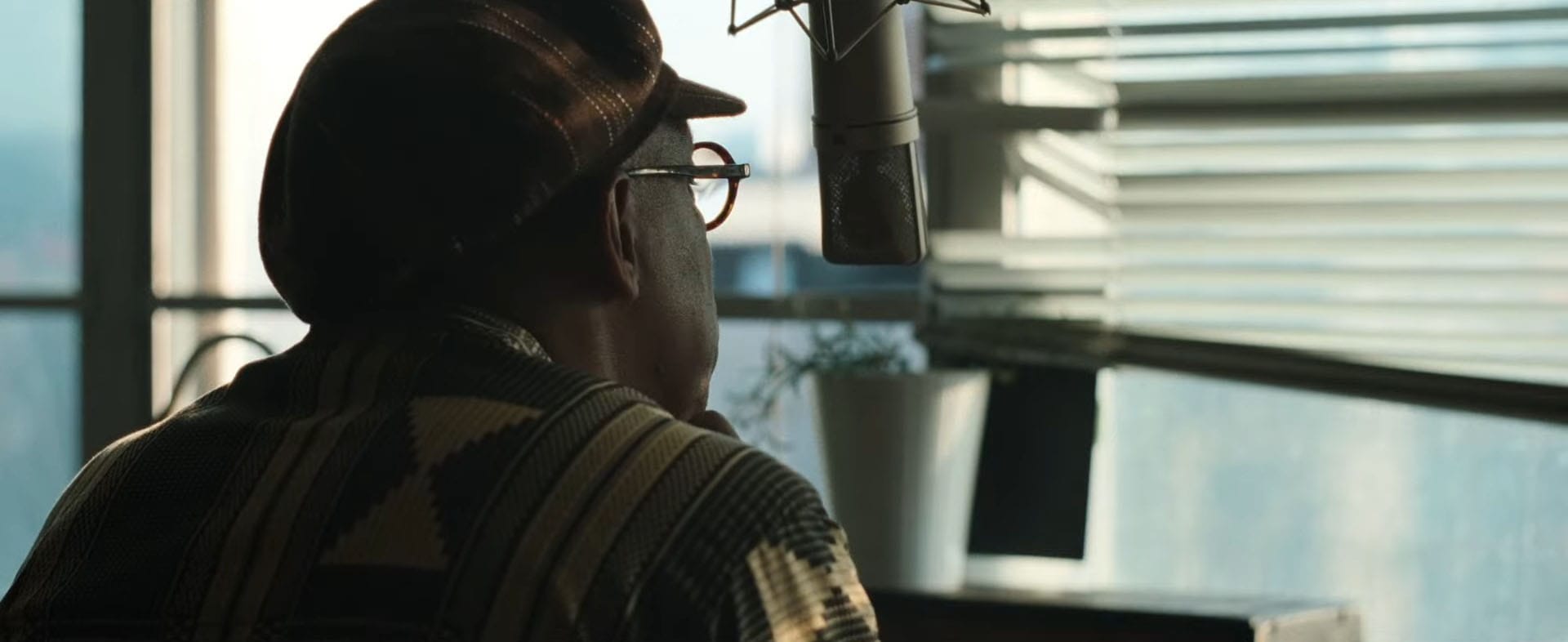
Upon Lord Kitchener being killed and Izi finding out, he went back to the kitchen and stayed there, when inside his fancy apartment it was all artificial. Yes, it was nice.m, however, the customizable view showed just how 2 dimensional it was. There was no heart, community togetherness, or realness, everything that he was used to. He felt like an outsider, and when seeing what happened to Lord Kitchener, he knew that he couldn’t be on the other side of the fence.
The kitchen was his home, the people that were suffering were part of his community and he couldn’t walk away knowing that the problems were still going on and that there were people that were suffering.
Staples Standing For Everyone
With the final moments of the film having Staples standing on top of a delivery van and fighting back against the authority, you kind of sympathize with him. He doesn’t want to be driven to a point where he’s committing a crime.
I feel that kind of sums up his approach perfectly. He wouldn’t be fighting back against the authorities if they weren’t trying to take their home and make them homeless. While also treating the people who live there like animals.
Without the kitchen, the residents would be homeless because they don’t have the means to survive. And with people being evicted from their homes up and down the country in modern-day society and being treated not too far from how the characters were in the film, what’s to say that we’re not too far away from a world like this?
It was a powerful message that showed that hope. Community togetherness, but also the unforgiving world that could well become a reality.
The Kitchen Movie Ending Explained
Wave the final part of the film saw both Izi and Benji back inside of their apartment in the kitchen as the streets looked empty and lifeless compared to what it was at the start of the movie, where there was conversation, music, and togetherness. Showing the effects of what the authorities had done in taking people away.
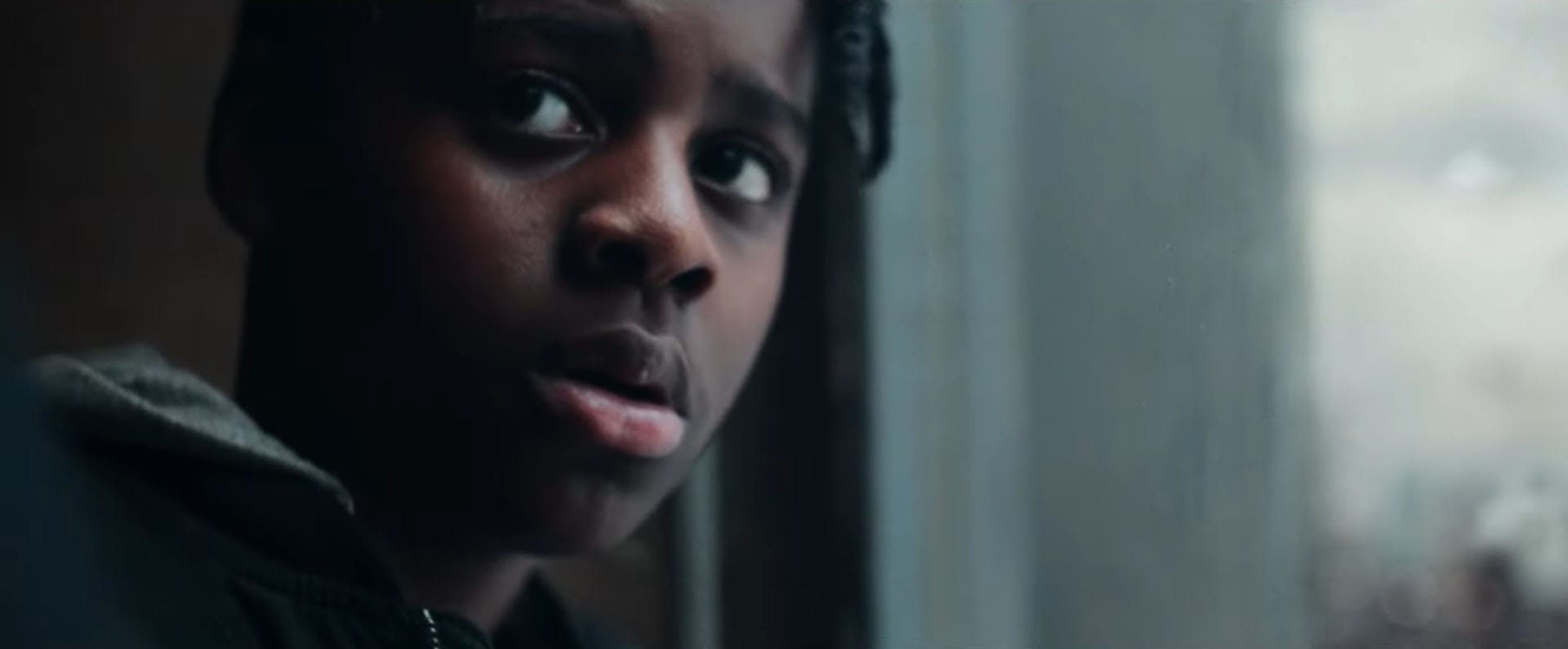
As they were looking out of the window, there was a banging on their door. And before it cuts to black and the movie finishes, there is a crashing noise, something which was also picked up in the subtitles. Almost to show you that the police had managed to break their way into it.
I feel the ominous nature of the ending and the fact that we didn’t get the answer was done in a deliberate way in an attempt to stick the landing even more. Did they survive, or did they not?
Life was a game of survival for them, not knowing when the next raid would be and when their time was up. So us not seeing what happened showed that they could have lived another day, or they might not have. They may have been taken away and even worse, killed. So it added to the powerful nature of the message. So technically there’s not actually a right answer, it’s up to us to decide.
Was Izi Benji’s Father?
One of the main underlying stories throughout the whole movie is Izi and Benjy’s relationship. For the most part, we didn’t know if they were related. However, throughout the runtime, Benji tells Izi what his mother told him about his father and that was that his father worked at life after life and that he lived in the kitchen, the exact same things that related to Izi.
There was a sense of care that was there with Izi towards Benji and one that made us realize long before the end that he was his father. Whilst it wasn’t explicitly vocalized that he was his father, he nodded and said “What do you want me to be?”.
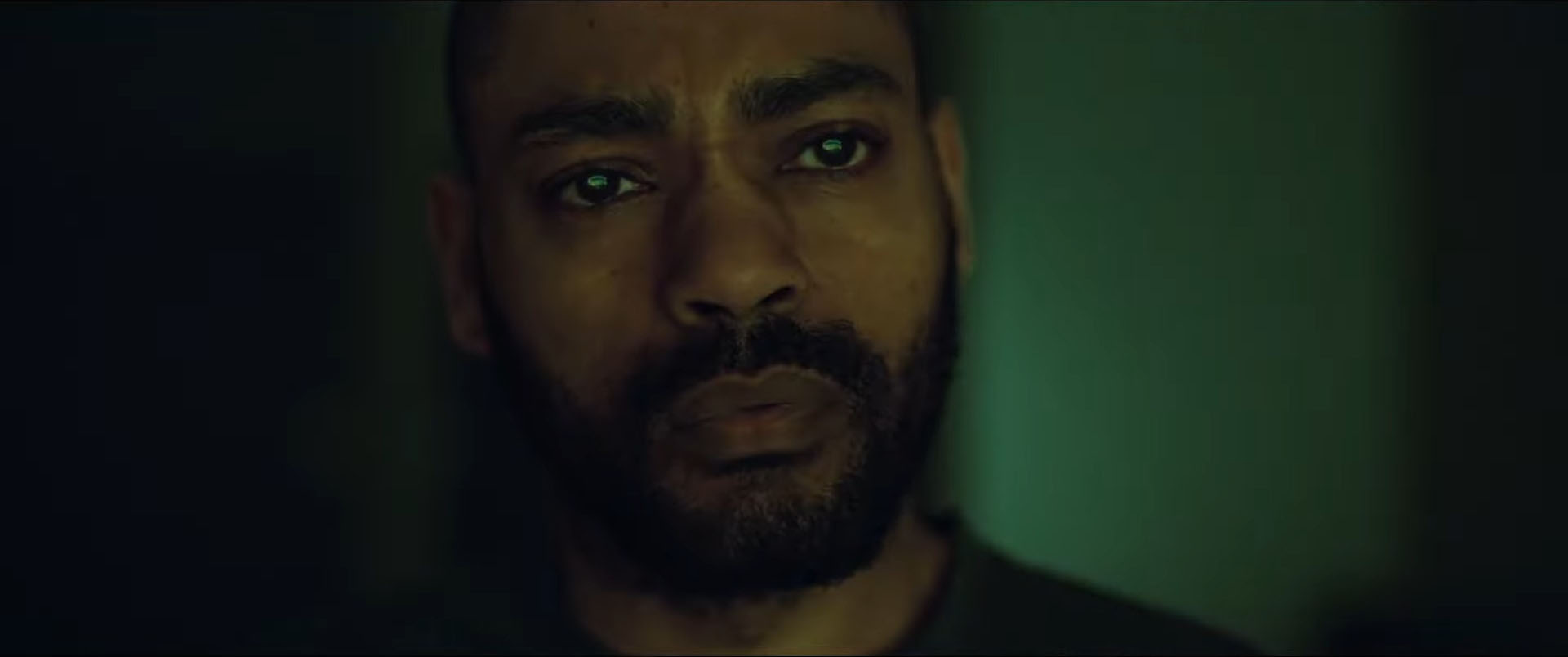
Despite being absent for all of Benjy’s life and Benji being told that his father didn’t love his mother, he wanted to be there for him and be present in his life moving forward. Hence that protection that was there for the entirety of it.
Overall Review
I thought The Kitchen was a good film. It was a little slow at points and it kind of lacked any driving force behind it to increase the pace, but I think that was kind of the point.
This was a dip-in and then a dip-out kind of movie with the message being the main takeaway, something which I think was very powerful when watching this film.
Kano is such a good actor and it’s good to see him getting cast in more roles. He’s so good in Top Boy and was brilliant in the final season and that strong performance was something that was carried over into this film too.
Aaron from Top Boy was also in this film as well, and he finally put his books down and got stuck in. Hope Ikpoku Jr was great in his role as Staples and it was just nice to see him return to the screen. Jedaiah Bannerman delivered a convincing performance as Benji as well. So there were no faults with the cast and the slightest.


